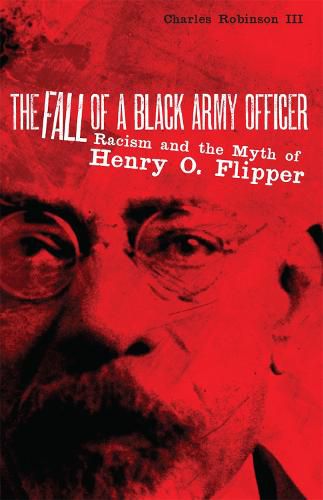Readings Newsletter
Become a Readings Member to make your shopping experience even easier.
Sign in or sign up for free!
You’re not far away from qualifying for FREE standard shipping within Australia
You’ve qualified for FREE standard shipping within Australia
The cart is loading…






Lieutenant Henry O. Flipper was a former slave who rose to become the first African American graduate of West Point. While serving as commissary officer at Fort Davis, Texas, in 1881, he was charged with embezzlement and conduct unbecoming an officer and a gentleman. A court-martial board acquitted Flipper of the embezzlement charge but convicted him of conduct unbecoming. He was then dismissed from the service of the United States. The Flipper case became known as something of an American Dreyfus Affair, emblematic of racism in the frontier army. Because of Flipper’s efforts to clear his name, many assumed that he had been railroaded because he was black.In The Fall of a Black Army Officer, Charles M. Robinson III challenges that assumption. In this complete revision of his earlier work, The Court-Martial of Lieutenant Henry Flipper, Robinson finds that Flipper was the author of his own problems.
The taint of racism on the Flipper affair became so widely accepted that in 1999 President Bill Clinton issued a posthumous pardon for Flipper. The Fall of a Black Army Officer boldly moves the arguments regarding racism–in both Lt. Flipper’s case and the frontier army in general–beyond political correctness. Solidly grounded in archival research, it is a thorough and provocative reassessment of the Flipper affair, at last revealing the truth.
$9.00 standard shipping within Australia
FREE standard shipping within Australia for orders over $100.00
Express & International shipping calculated at checkout
Lieutenant Henry O. Flipper was a former slave who rose to become the first African American graduate of West Point. While serving as commissary officer at Fort Davis, Texas, in 1881, he was charged with embezzlement and conduct unbecoming an officer and a gentleman. A court-martial board acquitted Flipper of the embezzlement charge but convicted him of conduct unbecoming. He was then dismissed from the service of the United States. The Flipper case became known as something of an American Dreyfus Affair, emblematic of racism in the frontier army. Because of Flipper’s efforts to clear his name, many assumed that he had been railroaded because he was black.In The Fall of a Black Army Officer, Charles M. Robinson III challenges that assumption. In this complete revision of his earlier work, The Court-Martial of Lieutenant Henry Flipper, Robinson finds that Flipper was the author of his own problems.
The taint of racism on the Flipper affair became so widely accepted that in 1999 President Bill Clinton issued a posthumous pardon for Flipper. The Fall of a Black Army Officer boldly moves the arguments regarding racism–in both Lt. Flipper’s case and the frontier army in general–beyond political correctness. Solidly grounded in archival research, it is a thorough and provocative reassessment of the Flipper affair, at last revealing the truth.